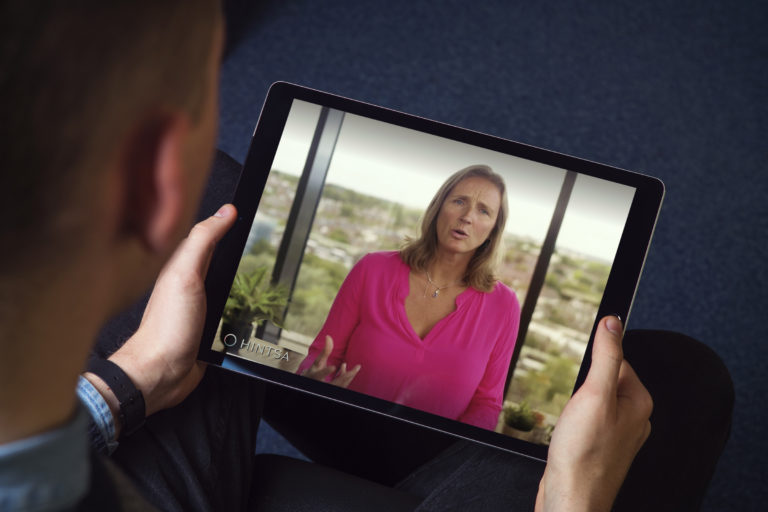Why Wellbeing is a Skill You Can Learn – We Spoke With Ashish Kothari

Wellbeing has long been seen as ‘fluffy’, something that is difficult to quantify. Yet studies have shown time and again that employees who look after and prioritise wellbeing can bring more to their workplace. Is wellbeing something that can be learned, developed and measured? Our Head of Advisory & People, Executive Mentor Pekka Pohjakallio reached out to Ashish Kothari for a chat.
I was thrilled to speak to Ashish Kothari – an executive coach, former McKinsey partner, author and founder of Happiness Squad. Here, we share his valuable insights into why wellbeing is a skill you can learn, and how he uses his analytical, engineering background to help businesses and individuals quantify wellbeing.
Thanks for taking the time to talk to us, Ashish. Why do you think wellbeing is so commonly overlooked, even in people who are health conscious?
We don’t miss wellness until we’re unwell and, for most people, it’s not something they consciously prioritise. Lots of us feel like we’re always chasing something that’s going to come and get us. That may be keeping up our work performance, meeting the demands of having a family, managing our weight, not letting our friends down. So we don’t pay attention to something like our wellbeing until there’s a crisis. It’s not that it isn’t important, but it isn’t urgent, and so we do not make wellbeing a priority.
And why is wellbeing so important in the business world, in particular?
We now work in an information economy. Most workers rely solely on their brains to deliver the outputs they need and want. Failing to look after your wellbeing means you cannot perform at a high cognitive level, which can quickly lead to mistakes in your work. At a time like this, we need energised, well employees who can find creative solutions to our problems – something we can’t do in a state of exhaustion.
I see the body and brain as machinery and we need to treat it as such. If you didn’t properly maintain your truck or hydraulic press, you wouldn’t be too surprised if it stopped working. Yet we expect our own ability to produce to be infinite, even though our power will quickly run out if we do not make efforts to replenish our minds and bodies.

Ashish Kothari has 25+ years consulting experience helping 1000s of leaders succeed.
You say wellbeing is a skill, but lots of people don’t see it that way – why is that?
There are four levels of skill – the lowest being unconsciously unskilled, which means you don’t even realise that you do not have the skill. The majority of people are unconsciously unskilled when it comes to wellbeing. They aren’t prioritising wellbeing because, crucially, they don’t know what they’re doing wrong. Some may not even understand the immense power they have to improve their wellbeing.
Have you ever just felt that your current state of wellbeing is fixed? It’s not – and like any skill, the more you practice, the better you’ll become at improving and protecting your wellbeing. In my work as an ontological coach, for example, I don’t just help people change their actions but entirely shift the limiting way they observe the world. It’s a significant undertaking that requires work to genuinely, well, work.
How does your background as an engineer and analyst impact how you view wellbeing?
While studying engineering, and over the course of my career, I embraced a ‘root cause’ approach to problem solving. Over time, I started to consider how I could turn my skills to helping people flourish, particularly in the workplace. And then I realised: you can apply that engineering approach to virtually anything, including subjects that are more challenging to quantify. If there’s anything my 25 years in consulting have taught me, it’s that you need to quantify your actions so you can actually track progress.
Upskill Your People in 2023
Wellbeing is a skill you can develop – and it’s increasingly important in today’s workplace. Watch our short videos on how to upskill your people on the crucial skills of wellbeing in 2023.
learn moreYou’ve helped many companies undergo wellbeing transformations. What’s the secret?
As a Newfield-certified ontological coach, I use the science to help my clients shift their perspective and make changes that last. But I also encourage companies to change how they see wellbeing entirely. To me, a wellbeing goal should be seen as a performance goal rather than simply a personal health aspiration. Our wellbeing is intrinsically, inextricably linked to how well we perform at work and it’s short sighted to try and demand higher levels of performance without properly looking after staff. None of us make our best decisions or are the most pleasant colleagues when we’re burnt out and exhausted.
One big yet very common mistake I see companies making is to make wellbeing an extra form of labour for their workers. They host well-meaning lunchtime yoga sessions or after-work meditation, which add to their workers’ already overflowing to-do lists. Instead, they should look at ways to make everyday work activities more wellbeing focused, like building a culture of taking walking meetings or letting employees use standing desks.
Once a company has wellbeing initiatives in place, how can they measure their success?
Wellbeing is subjective but that doesn’t mean it can’t be assessed. At a macro level, look at aspects like the cost of healthcare, attrition, the volume of calls to your employee assistance programme. If these are decreasing, it’s a strong indicator that staff wellbeing is broadly good. On a micro level, it’s sensible to encourage each person to aim for progress over perfection. Ask your people to pick three elements of wellbeing they want to measure and encourage them to speak candidly within their teams about their personal journeys.
Thank you Ashish for taking the time to share your insights with us! If you’d like to learn more about proven practices to unlock your full potential and live your best life, check out Ashish’s new book Hardwired for Happiness and his podcast Happiness Squad.



